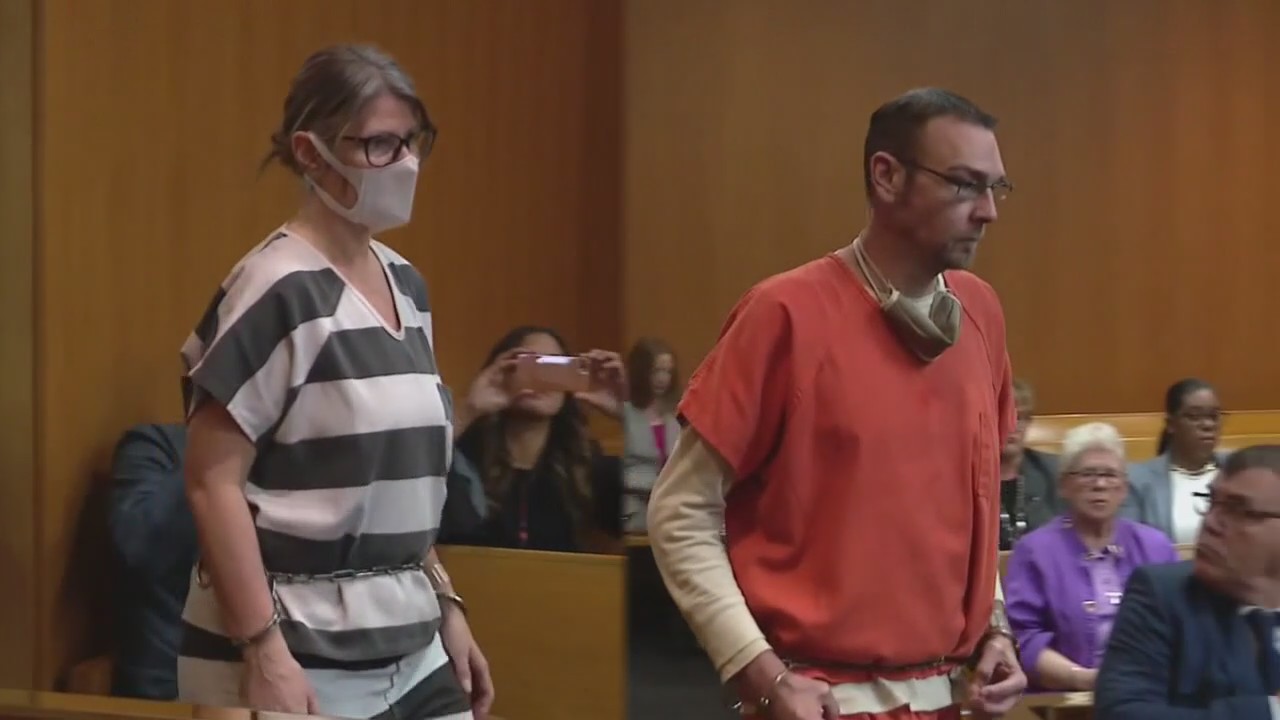Oxford shooter's parents trial set for January after appeals denied

James and Jennifer Crumbley
PONTIAC, Mich. (FOX 2) - Nearly two years since their son shot and killed four students inside of Oxford High School, James and Jennifer Crumbley are still behind bars and waiting on the start of their trial after a lengthy appeals process. This week, their final appeal to the Michigan Supreme Court was denied to be heard – now they're both set for trial in January.
According to court records, The Crumbley parents will head to trial starting on Tuesday, January 23, 2024, in Oakland County. Their trial will start almost two months after their son will be sentenced after Judge Kwame Rowe ruled that he was eligible to be sentenced to life in prison last week.
The date was set after the state Supreme Court declined to hear the request from the Crumbley parents.
We are no longer naming the shooter, who has pleaded guilty and will be sentenced on Dec. 8
The Crumbley parents are charged with four counts of involuntary manslaughter after their son killed four students at the school on Nov. 30, 2021. The parents are accused of buying their son the weapon used in the shooting and failing to address his mental health concerns.
New evidence reveals James, Jennifer Crumbley's 'consciousness of guilt'
Since the Nov. 30, 2021 shooting, prosecutors have claimed James and Jennifer Crumbley were grossly negligent. They are accused of buying their son the gun used in the school shooting just days before.
When their son pleaded guilty to all charges against him last year, he admitted that he gave James money to buy the gun.
Defense attorneys have argued that whatever the parents did might have been considered bad parenting, but it was not the cause of the deaths, and they want the case thrown out because they aren't responsible for the actions of their son.
In March, the Michigan Court of Appeals ruled that there was enough evidence to try James and Jennifer, so they took their request to the Supreme Court a few months later. They were asking the court to hear the motion and dismiss charges against them.
If the court had agreed to hear it, details from the preliminary examination and other court proceedings would have been debated. However, since this was denied the appeals court ruling stands.

Prosecutor: New evidence shows Crumbley parents were negligent before son's Oxford shooting
Since the Nov. 30, 2021 shooting, prosecutors have claimed James and Jennifer Crumbley were grossly negligent. They are accused of buying Ethan the gun used in the school shooting just days before.

